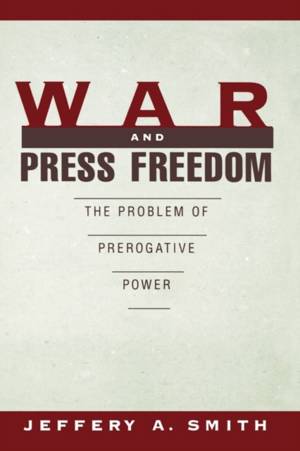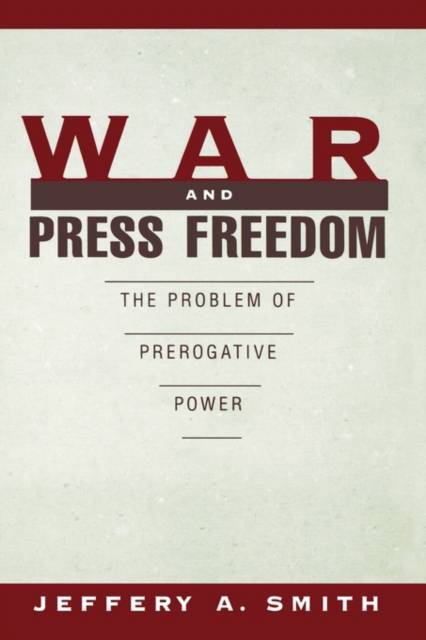
- Afhalen na 1 uur in een winkel met voorraad
- Gratis thuislevering in België vanaf € 30
- Ruim aanbod met 7 miljoen producten
- Afhalen na 1 uur in een winkel met voorraad
- Gratis thuislevering in België vanaf € 30
- Ruim aanbod met 7 miljoen producten
Zoeken
War and Press Freedom
The Problem of Prerogative Power
Jeffrey a Smith, Jeffery a Smith
Paperback | Engels
€ 91,95
+ 183 punten
Omschrijving
War and Press Freedom: The Problem of Prerogative Power is a groundbreaking and provocative study of one of the most perplexing civil liberties issues in American history: What authority does or should the government have to control press coverage and commentary in wartime? First Amendment scholar Jeffery A. Smith shows convincingly that no such extraordinary power exists under the Constitution, and that officials have had to rely on claiming the existence of an autocratic "higher law" of survival. Smith carefully surveys the development of statutory restrictions and military regulations for the news media from the ratification of the Bill of Rights in 1791 through the Gulf War of 1991. He concludes that the armed forces can justify refusal to divulge a narrow range of defense secrets, but that imposing other restrictions is unwise, unnecessary, and unconstitutional. In any event, as electronic communication becomes almost impossible to constrain, soldiers and journalists must learn how to respect each other's obligations in a democratic system.
Specificaties
Betrokkenen
- Auteur(s):
- Uitgeverij:
Inhoud
- Aantal bladzijden:
- 336
- Taal:
- Engels
Eigenschappen
- Productcode (EAN):
- 9780195099461
- Verschijningsdatum:
- 25/02/1999
- Uitvoering:
- Paperback
- Formaat:
- Trade paperback (VS)
- Afmetingen:
- 155 mm x 234 mm
- Gewicht:
- 485 g

Alleen bij Standaard Boekhandel
+ 183 punten op je klantenkaart van Standaard Boekhandel
Beoordelingen
We publiceren alleen reviews die voldoen aan de voorwaarden voor reviews. Bekijk onze voorwaarden voor reviews.







